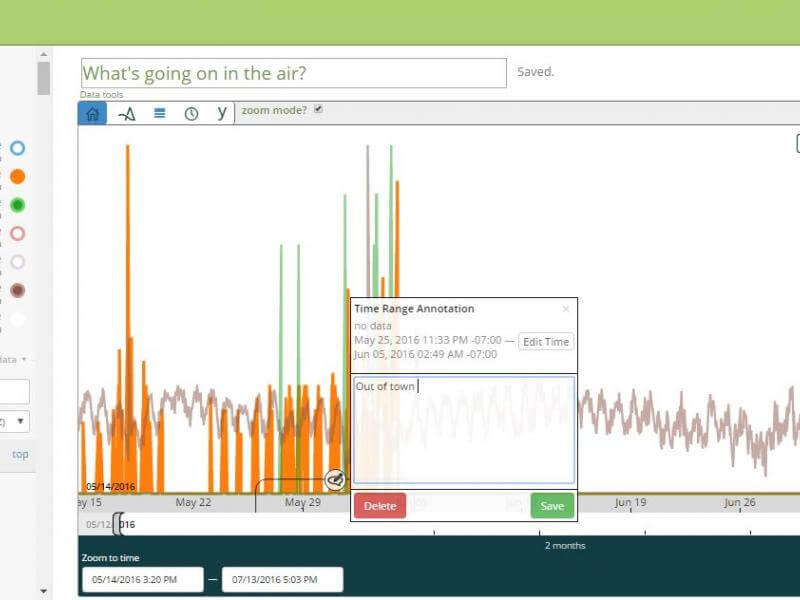Data Sense
Dawn Nafus, IntelBoston 2017: STS Infrastructures

Data Sense is a software prototype that emerged from the Biosensors in Everyday Life program—a collaboration between four universities and Intel that examined the proliferation of technologies that sense bodies and their environments. That program identifieda need for greater space for technology users to reframe and repurpose what data means to them. Many technologies, especially those that work with idioms of health or fitness, traffic in cultural normativities that are not especially helpful for deepening or questioning knowledge about bodies. Yet technology users often have good contextual knowledge that might reveal the significance of data beyond what a data scientist could do working behind the scenes. That program also explored the materiality of enumeration—the idea that counting and physicality are inseparable, and that numeracy is not necessarily a function of formal STEM education alone. When it comes to their own bodies, technology users learn about data quite quickly, provided they have a starting place and support. Based on this work, Intel formed a team co-led by an STS scholar and an engineer to prototype a tool that would ease some of the technical barriers of exploring data, and make it easier to explore temporal, spatial, or correlational patterns that could be contextually meaningful. Data Sense automates some formatting issues that tend to trip up non-data scientists trying to explore data. It then provides a limited set of visual tools where users can interact with data directly on the visualization—a user can “grab” a spike in a line graph and “throw” it over to a map to see where it happened. We also built in explanations of commonly used data processing functions that tie back to the everyday context of using sensor device users, such as a video that shows why a rolling average might be particularly useful for calorie data but not necessarily heart rate data. By facilitating greater access to data in manipulatable formats, and providing introductory tools to explore it, we hope to make a small intervention in narrowing the big data divide. While Data Sense sought to embody key sensibilities of STS, I have also begun using it as an methodological tool for conducting ethnography. In my ongoing research on self-tracking, I invite participants to explore their data with me using Data Sense. Data Sense provides them opportunities to reflect on their data in a new way, which in turn gives me the opportunity to understand their thought processes and webs of significance more deeply.
Published: 01/30/2023
